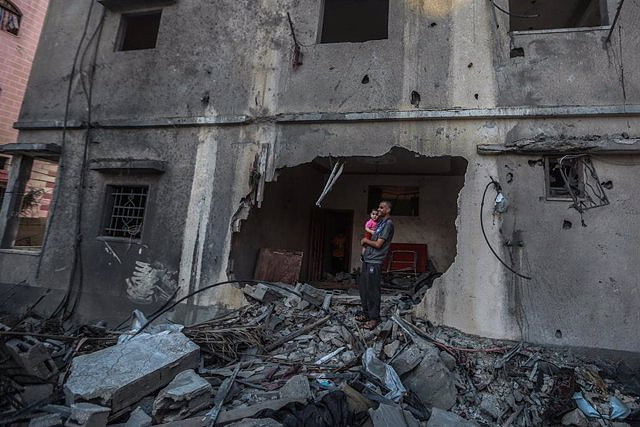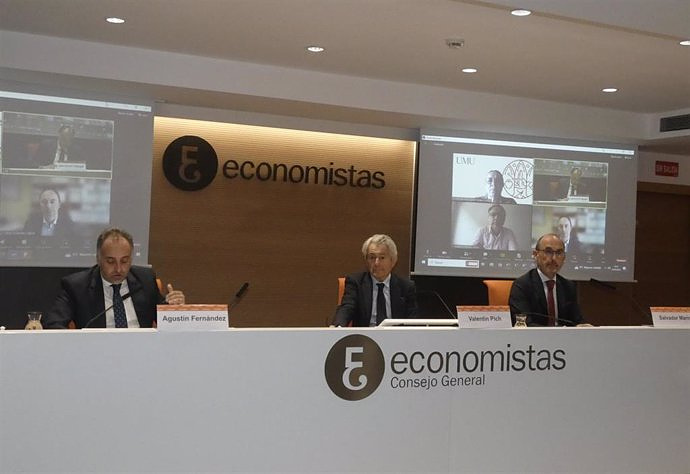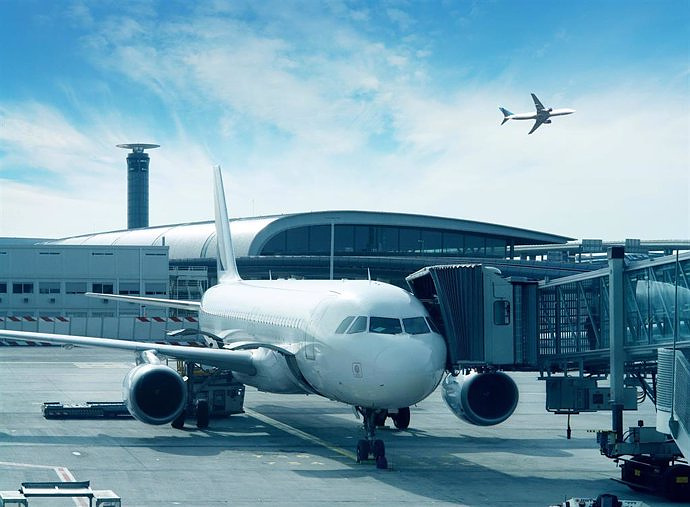The ICRC stresses that "the young people residing in Gaza desperately need a path to hope"
MADRID, 27 Sep. (EUROPA PRESS) -
About 90 percent of young Palestinians living in the Gaza Strip believe that their lives are not under "normal" circumstances due to the war and the blockade imposed by Israel, according to a survey by the International Committee of the Red Cross (ICRC). ).
The results of the survey, conducted between July 18 and August 3 of 385 Palestinians between the ages of 18 and 30, show that two-thirds of Gazans depend on their families for income, while 40 percent they say they have no hope of finding a job for the next 15 years.
Thus, 88.8 percent of the participants stated that life in Gaza is "abnormal" compared to other areas, mainly due to the repercussions of the clashes, the blockade, internal differences between Palestinian factions and climate change.
In addition, 95.6 percent consider that they are negatively affected by the humanitarian situation due to lack of work and low income, lack of access to basic services, including power cuts, poor water quality, lack of withdrawal garbage and malnutrition, and the impact of hostilities.
On the other hand, 49 percent of young Gazans suffer from stress, anxiety and depression, while 34.5 percent say they suffer from social problems with their friends and 12.4 percent choose to avoid marriage.
38.7 percent of the respondents point to a decrease in access to quality medical services due to the limited capacities of health centers, while 33.6 percent cannot afford to pay for health care and 27 .7 percent are unable to receive treatment due to foreign travel restrictions.
Added to this is the fact that 39.2 percent of young Gazans have lost job opportunities abroad and that 20.6 percent were unable to leave the enclave for a business opportunity. Likewise, 16.2 per cent have been denied access to better treatment, 12.9 per cent have lost a scholarship abroad and 11.1 per cent have experienced reduced chances of establishing a family.
Regarding the future, 42.9 percent believe that they will not be able to find a job in the next 15 years, while 67.5 percent believe that there will be new hostilities with Israel in the future. An additional 19.2 percent believe there is a 50 percent chance of further clashes.
Likewise, 47.8 percent say they have little hope about an improvement in travel mechanisms to and from the Strip, while 33.5 percent say they have no hope in this regard.
Lastly, 66.2 percent believe they will have no electricity for the whole day and 38.4 percent expect new generations of internet services to come to Gaza, with 23.4 percent expecting just the opposite.
A fifth of Gaza's population is between the ages of 18 and 29, and 15 years of Israeli-imposed restrictions on the movement of people and goods have contributed to a deteriorating economic and humanitarian situation in the Strip, according to the ICRC.
"The wars and the blockade have negatively impacted all the young people in Gaza, not just me. The war is bad enough on its own and added to the blockade it makes it too much to bear," said Laiz Rashdan, a university graduate. 25 years old.
Nuran al Zaim, 23, stressed that "all that is asked is to live normally, like others around the world." "We want to be able to move freely, travel and have decent jobs," he explained in statements to the body.
In this sense, the deputy secretary of the ICRC sub-delegation in Gaza, Nicolas Geeraert, stated that "the needs of young people go beyond the economic dimension of Gaza, since half of the young people say they have suffered significant problems of mental health and a third of them suffer from social problems.
"The young people residing in Gaza desperately need a path to hope and opportunity away from the pain and suffering caused by hostilities and restrictions on movement," Geeraert said.
For this reason, the ICRC has called for long-term solutions that provide dignified solutions to young Gazans and has asked the Israeli and Palestinian authorities to address the humanitarian consequences that prevent the population's access to essential services in the enclave.

 Exploring Cardano: Inner Workings and Advantages of this Cryptocurrency
Exploring Cardano: Inner Workings and Advantages of this Cryptocurrency Seville.- Economy.- Innova.- STSA inaugurates its new painting and sealing hangar in San Pablo, for 18 million
Seville.- Economy.- Innova.- STSA inaugurates its new painting and sealing hangar in San Pablo, for 18 million Innova.- More than 300 volunteers join the Andalucía Compromiso Digital network in one month to facilitate access to ICT
Innova.- More than 300 volunteers join the Andalucía Compromiso Digital network in one month to facilitate access to ICT Innova.-AMP.- Ayesa acquires 51% of Sadiel, which will create new technological engineering products and expand markets
Innova.-AMP.- Ayesa acquires 51% of Sadiel, which will create new technological engineering products and expand markets The parties open the election campaign in Catalonia
The parties open the election campaign in Catalonia Javier Tebas: "The CSD Commission does not have legal protection"
Javier Tebas: "The CSD Commission does not have legal protection" STATEMENT: Repair your Debt Lawyers cancels €65,000 in Cantabria with the Second Chance Law
STATEMENT: Repair your Debt Lawyers cancels €65,000 in Cantabria with the Second Chance Law RELEASE: Zoomlion shines at INTERMAT 2024 with a vision for a greener and smarter future
RELEASE: Zoomlion shines at INTERMAT 2024 with a vision for a greener and smarter future How Blockchain in being used to shape the future
How Blockchain in being used to shape the future Not just BTC and ETH: Here Are Some More Interesting Coins Worth Focusing on
Not just BTC and ETH: Here Are Some More Interesting Coins Worth Focusing on Retrópolis brings the golden age of video games and computing to the UPV
Retrópolis brings the golden age of video games and computing to the UPV Looking for video games that value the neighborhoods of Valencia
Looking for video games that value the neighborhoods of Valencia UPV researchers improve the efficiency of air conditioning systems using a geothermal heat pump
UPV researchers improve the efficiency of air conditioning systems using a geothermal heat pump València is committed to citiverse and smart tourism to be "the reference technological hub of the Mediterranean"
València is committed to citiverse and smart tourism to be "the reference technological hub of the Mediterranean" A million people demonstrate in France against Macron's pension reform
A million people demonstrate in France against Macron's pension reform Russia launches several missiles against "critical infrastructure" in the city of Zaporizhia
Russia launches several missiles against "critical infrastructure" in the city of Zaporizhia A "procession" remembers the dead of the Calabria shipwreck as bodies continue to wash up on the shore
A "procession" remembers the dead of the Calabria shipwreck as bodies continue to wash up on the shore Prison sentences handed down for three prominent Hong Kong pro-democracy activists
Prison sentences handed down for three prominent Hong Kong pro-democracy activists ETH continues to leave trading platforms, Ethereum balance on exchanges lowest in 3 years
ETH continues to leave trading platforms, Ethereum balance on exchanges lowest in 3 years Investors invest $450 million in Consensys, Ethereum incubator now valued at $7 billion
Investors invest $450 million in Consensys, Ethereum incubator now valued at $7 billion Alchemy Integrates Ethereum L2 Product Starknet to Enhance Web3 Scalability at a Price 100x Lower Than L1 Fees
Alchemy Integrates Ethereum L2 Product Starknet to Enhance Web3 Scalability at a Price 100x Lower Than L1 Fees Mining Report: Bitcoin's Electricity Consumption Declines by 25% in Q1 2022
Mining Report: Bitcoin's Electricity Consumption Declines by 25% in Q1 2022 Oil-to-Bitcoin Mining Firm Crusoe Energy Systems Raised $505 Million
Oil-to-Bitcoin Mining Firm Crusoe Energy Systems Raised $505 Million Microbt reveals the latest Bitcoin mining rigs -- Machines produce up to 126 TH/s with custom 5nm chip design
Microbt reveals the latest Bitcoin mining rigs -- Machines produce up to 126 TH/s with custom 5nm chip design Bitcoin's Mining Difficulty Hits a Lifetime High, With More Than 90% of BTC Supply Issued
Bitcoin's Mining Difficulty Hits a Lifetime High, With More Than 90% of BTC Supply Issued The Biggest Movers are Near, EOS, and RUNE during Friday's Selloff
The Biggest Movers are Near, EOS, and RUNE during Friday's Selloff Global Markets Spooked by a Hawkish Fed and Covid, Stocks and Crypto Gain After Musk Buys Twitter
Global Markets Spooked by a Hawkish Fed and Covid, Stocks and Crypto Gain After Musk Buys Twitter Bitso to offset carbon emissions from the Trading Platform's ERC20, ETH, and BTC Transactions
Bitso to offset carbon emissions from the Trading Platform's ERC20, ETH, and BTC Transactions Draftkings Announces 2022 College Hoops NFT Selection for March Madness
Draftkings Announces 2022 College Hoops NFT Selection for March Madness



























